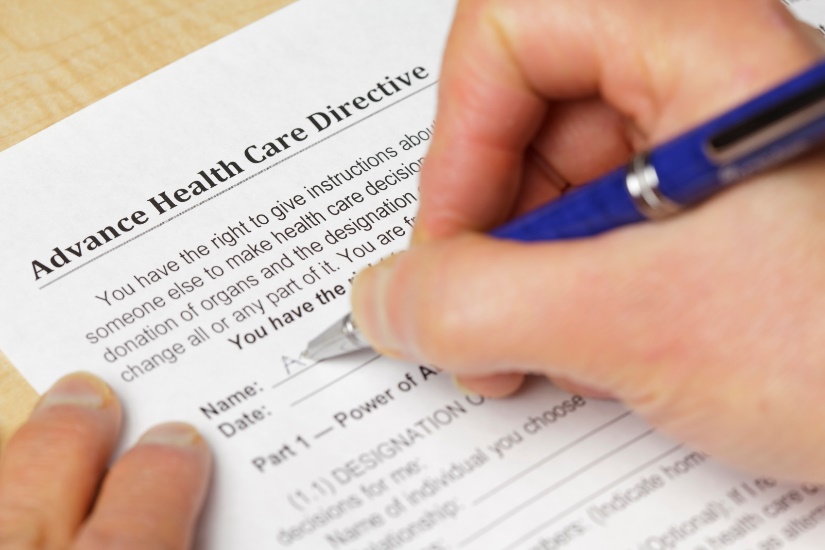
What is an Advance Health Care Directive (AHCD)?
A document called an Advance Health Care Directive (AHCD) often replaces both Living Wills and Durable Powers of Attorney for Health Care. There are significant benefits to having an AHCD, but you are not required to have to have one – it is completely up to you.
An AHCD is a document you can create to make sure your medical health care wishes honored. The hospital staff is required by federal law to ask if you have an AHCD when you are admitted to a hospital.
What does an AHCD do?
The AHCD is a document that does two important things:
AHCD allows you to give instructions about your future medical care. It tells your health care provider what kind of medical treatment you want if you become incapacitated (unable to choose or express your wishes yourself).
AND
AHCD allows you to designate a person to make your health care decisions for you when you become incapacitated. This was previously done in a Durable Power of Attorney (DPOA) for Health Care.
The most common use of an AHCD is to express your wish that you not be kept alive with life-sustaining procedures, for example, with a respirator, kidney dialysis, transplants, or tube feeding. However, it can also instruct your doctor to do everything possible to keep you alive.
Selecting an “Agent” To Make Health Care Decisions
Within the AHCD, you have the option to designate a person who will have the power to make decisions if you become incapacitated. Your “agent” will be able to make decisions including: changing your doctor, moving you to another hospital or facility, refusing life sustaining procedures. You do not have to choose an “agent.” However, if you do not choose an agent, the Surrogate Law will take effect if you become incapacitated.
Unless you limit their authority, your agent will have the power to make all health-care decisions for you.
What’s the difference between an Agent and a Surrogate?
Unless you limit your agent’s power in the AHCD, your designated agent will have the power to make all health care decisions for you, including refusing life sustaining procedures. If you do not have an agent, and a surrogate is chosen by the courts or someone other than yourself, the surrogate will be able to make most health care decisions on your behalf, but will not have the power to make decisions about life sustaining procedures. Only the doctors will be able to decide when to stop life sustaining procedures.
When Does an AHCD Come Into Effect?
Unless otherwise specified, your AHCD becomes effective only if you lose the ability to express your wishes to your doctor. However, when you make your AHCD, you can specifically create it so that the document is effective immediately upon signing. If you do not specify that the document is effective upon signing, your primary doctor will decide if your condition is severe enough to cause your AHCD to come into effect.
If you are in an accident and taken to an emergency room, the hospital will do everything it can to save you. If your condition stabilizes and you do not recover, your doctor will evaluate your medical condition and decide if your AHCD should become effective.
You should talk to your doctor and, your family about your AHCD now, so they know what your wishes are in advance and will be better able to carry them through.
What Do I Do With My AHCD?
Give a copy to:
- your primary doctor to be placed in your medical records. If you change your primary doctor, make sure to give your new doctor a copy.
- the family member who is most likely to be called if you are in the hospital.
Keep the original and put it in a place where a friend or relative can find it if you become seriously ill.
Is My Living Will Still Valid?
As a general rule, you should have an AHCD created if your Living Will is over 5 years old since laws have changed so much in recent years and are different in every state. Although your Living Will may be legally valid, hospital staff may get confused if they are not familiar with the old format.
If you have an out-of-state Living Will or AHCD, you should ask your doctor if they’ll recognize it. You may want to do a new advanced health care directive, in case your current one doesn’t conform to current state law.
